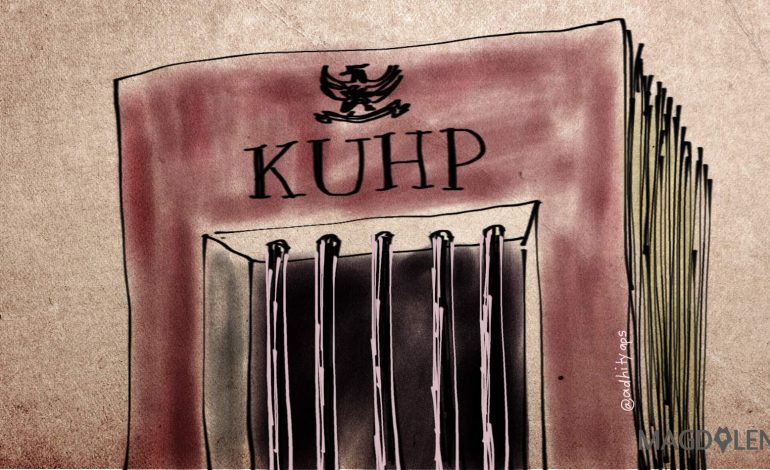Concerns rising over Criminal Bill’s Ban on Consensual Sex Outside of Marriage

An ongoing parliamentary effort to widen the scope of crimes that could result in the criminalizing of sex outside of marriage as well as homosexuality has raised concerns over the various negative impacts it would have.
Activists and academics pointed out that some articles in the draft bill of the Revision of Criminal Code (RKUHP), which is currently in the final stage of debate in Parliament and is expected to be passed later this year, are unconstitutional.
One of them is Article 484E, which contradicts the first part of Article 28G of the 1945 Constitution on an individual’s private rights. According to Article 484E of the Criminal Code Revision draft bill, “a man and a woman who are not legally married and who engage in a sexual intercourse” are punishable by a maximum of five years jail time.
The Constitution specifically stipulates that “it is the State’s responsibility to protect an individual’s honor and dignity and to provide them with the feeling of safety and security from others’ violation,” said Ratna Batara Munti, who heads women’s organization LBH Apik in a discussion last week.
“Bans on pre-marital sex can be categorized as ‘victimless crime’ because it is unclear who is actually being harmed in a consensual sex,” she said. “As a result, the law often targets those who actually have become victims of violence and persecution.”
She referred to cases of young couples who were assaulted and publicly humiliated by a group of people for engaging in pre-marital sex privately.
For cases involving individual’s relationships, Ratna suggested applying the principle of ‘ultimum remedium’, a legal approach that favors negotiation, mediation, civil law, and only resorting to the criminal court if all other efforts have failed.
The draft bill could also potentially criminalize victims of sexual violence, illegitimate wives of polygamous marriage, and couples of traditional marriages that are not recognized by the state.
In addition, Article 488 of the draft bill also bans cohabitation, citing that “couples who live as husband and wife outside of marriage” are punishable by a year imprisonment.
“It is indeed unclear what they actually mean by ‘living as husband and wife’. Does it mean that the couple has to cook together, or take care of a child, or has sexual relationship in order to be categorized as ‘living as husband and wife’?” asked Imam Nahe’i, an Islamic teacher and a Commissioner at the National Commission on Violence Against Women (Komnas Perempuan).
Imam cited an example of people who might be affected by this clause: “I have a friend who is a devout hijabed woman. She has been living with another hijabed woman for years now. They used to be involved sexually, but not anymore as they are now in their late 50s. They told me that all that they focus on right now is taking care of their child. Is it really these kind of people who are being targeted by this new draft?”
Anugrah Rizki Akbari, an academic from Jentera School of Law, warned that the bill will further target the lesbians, gay, bisexual and transgender (LGBT) people. He also questioned the bill imposes higher punishment for sexual assault of an adult person of the same sex than of a child under 18 years old.
The police’s much publicized raids on a gay club in Jakarta, and the recent raids and assaults of transgender working in salon in Aceh have raised concerns of persecution of sex minorities across the country.
Article 495 of the draft bill stipulates that sexual assault to a child of the same sex under 18 years old faces 9 years imprisonment. The same conduct perpetrated on an adult over 18 years of age is punishable by 12 years in.
“Punishing the adults more severely clearly indicates negative sentiment towards homosexuals,” he added.
Anugrah said the Indonesian government didn’t seem to have any clear visions or aims in drafting the bill.
“A law shouldn’t be made based on sentiments or hatred,” he said, adding making a regulation shouldn’t be clouded by personal views or principle on morality.
Prof. Sulistyowati Irianto from the Law Faculty of University of Indonesia, encourages everyone to think critically about what is happening.
“We need to actively question whether this draft is actually being made for all people or simply to give advantage to a group of people,” she said.
Find out what this feminist scholar and activist has to say about hoax and humanity in post-truth era.






















